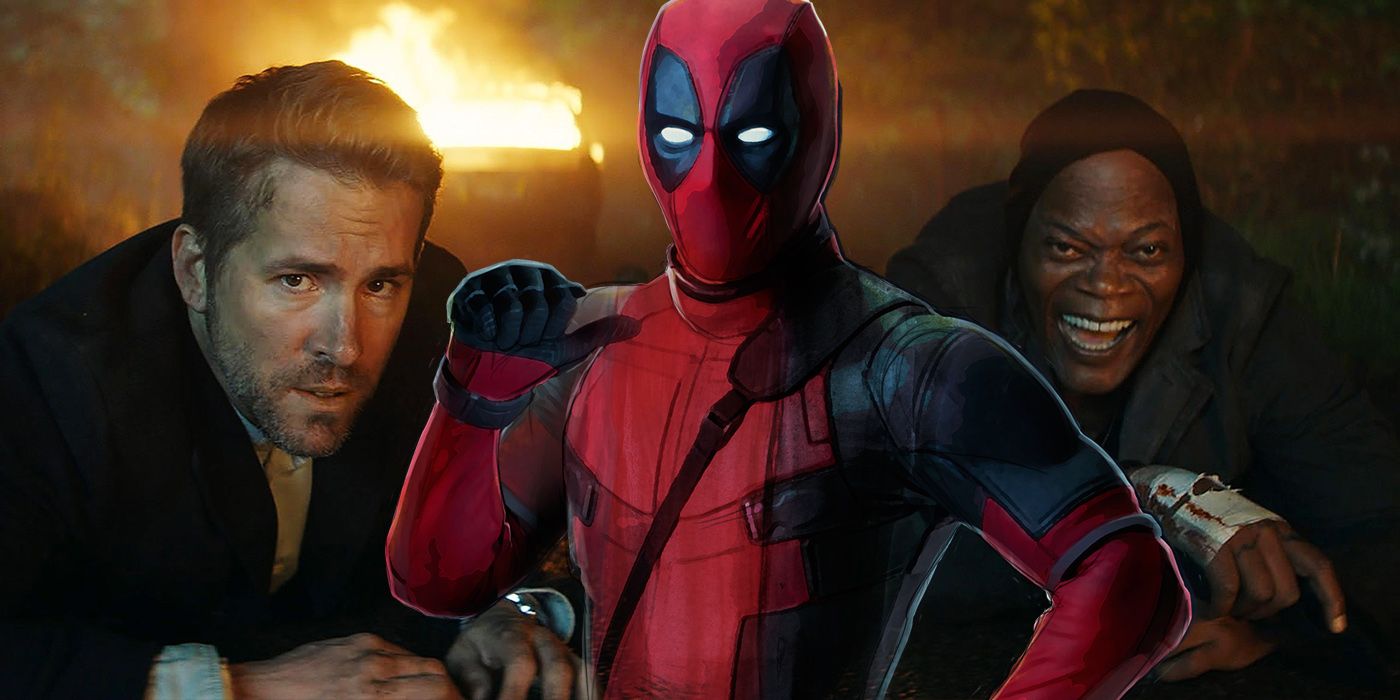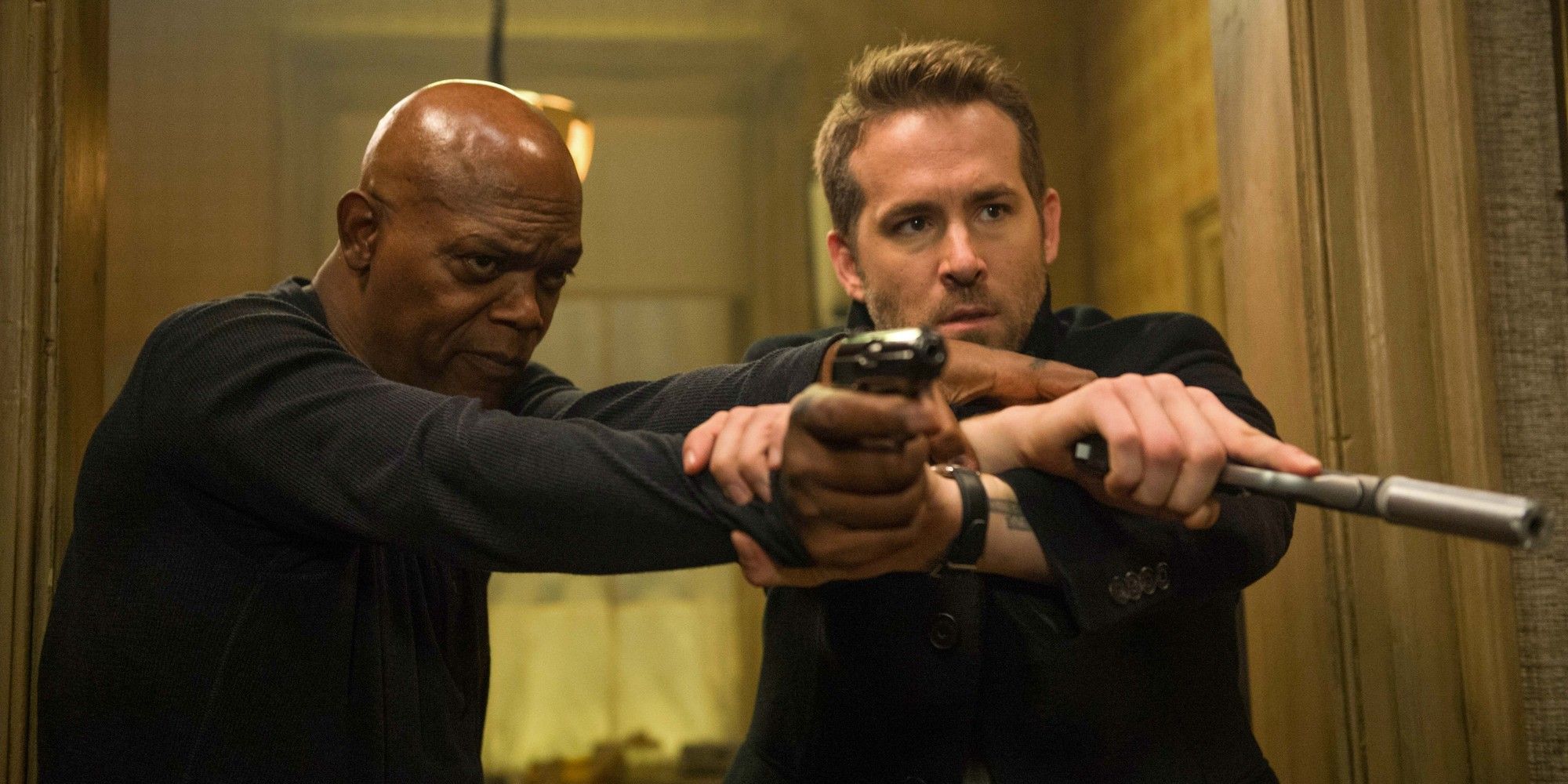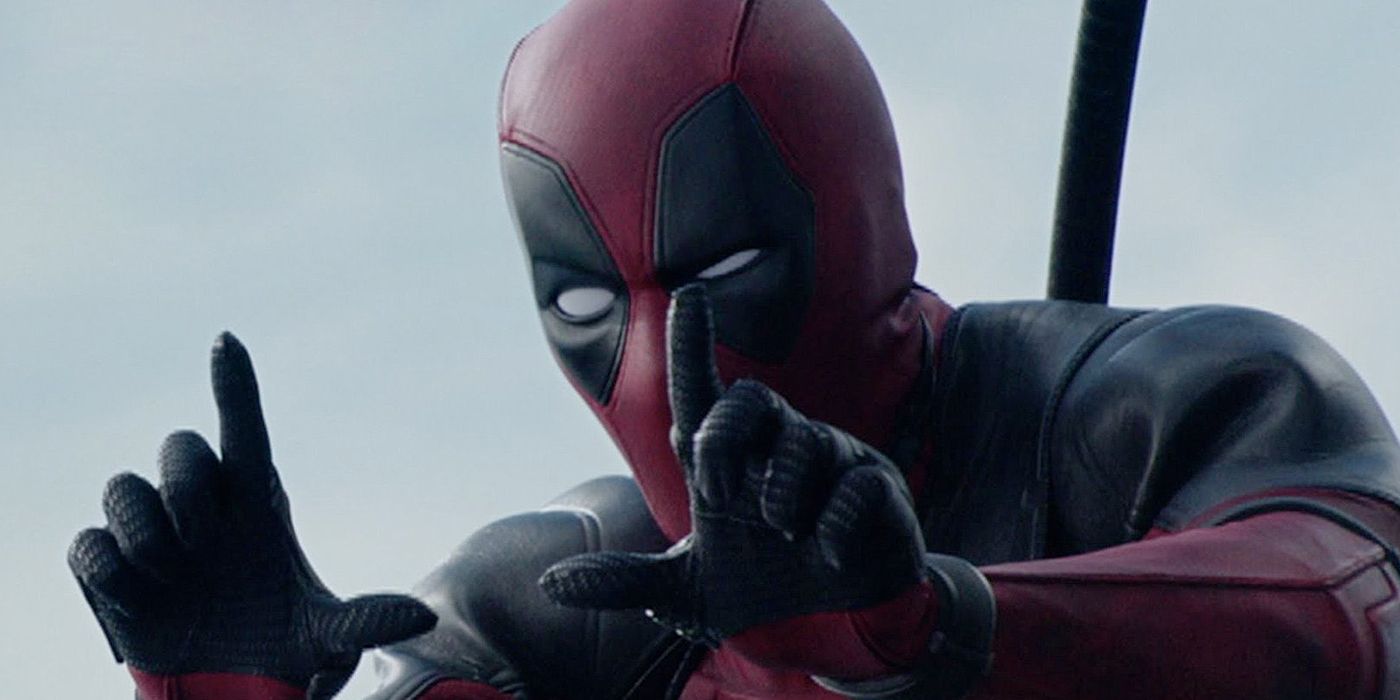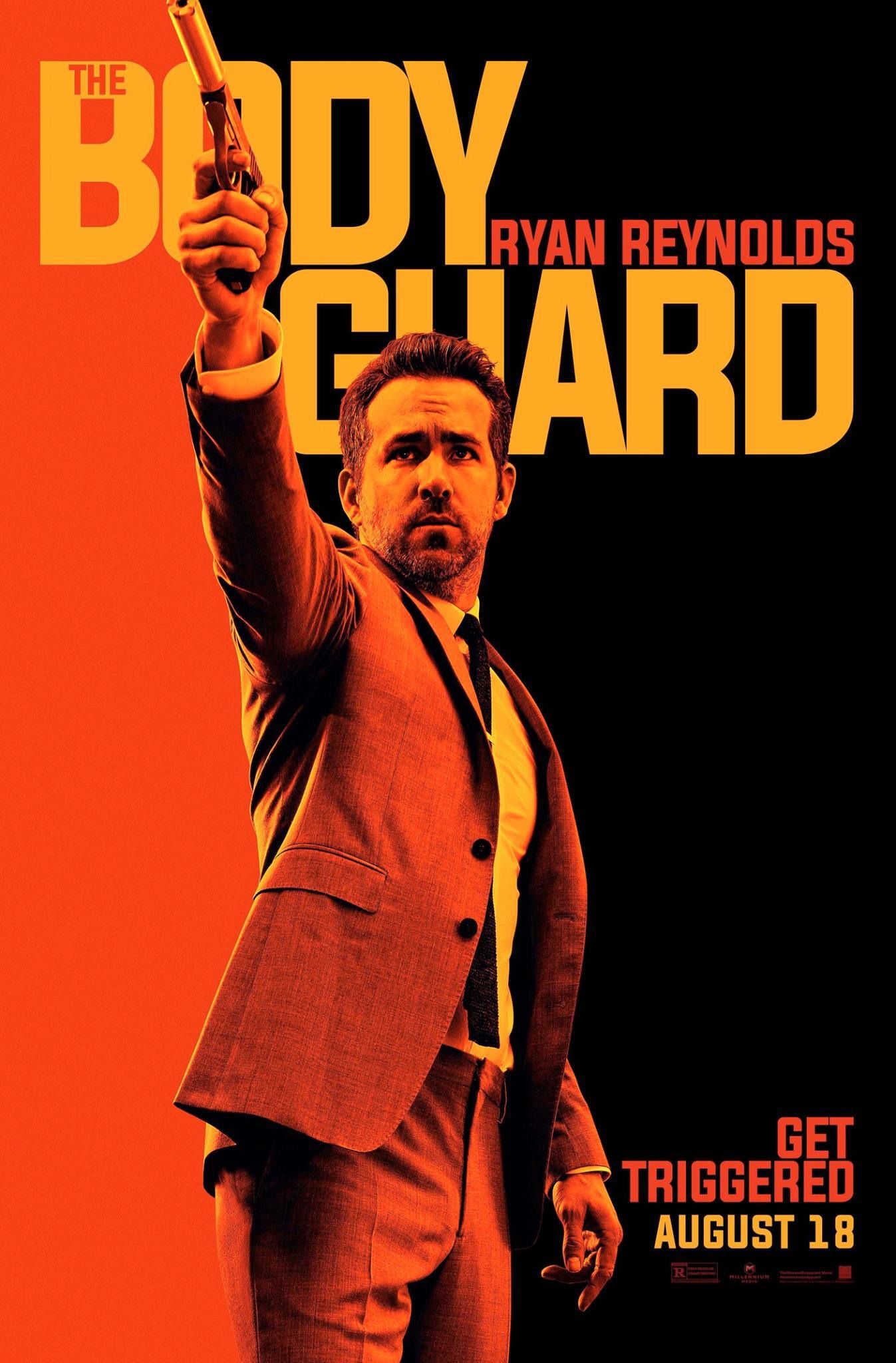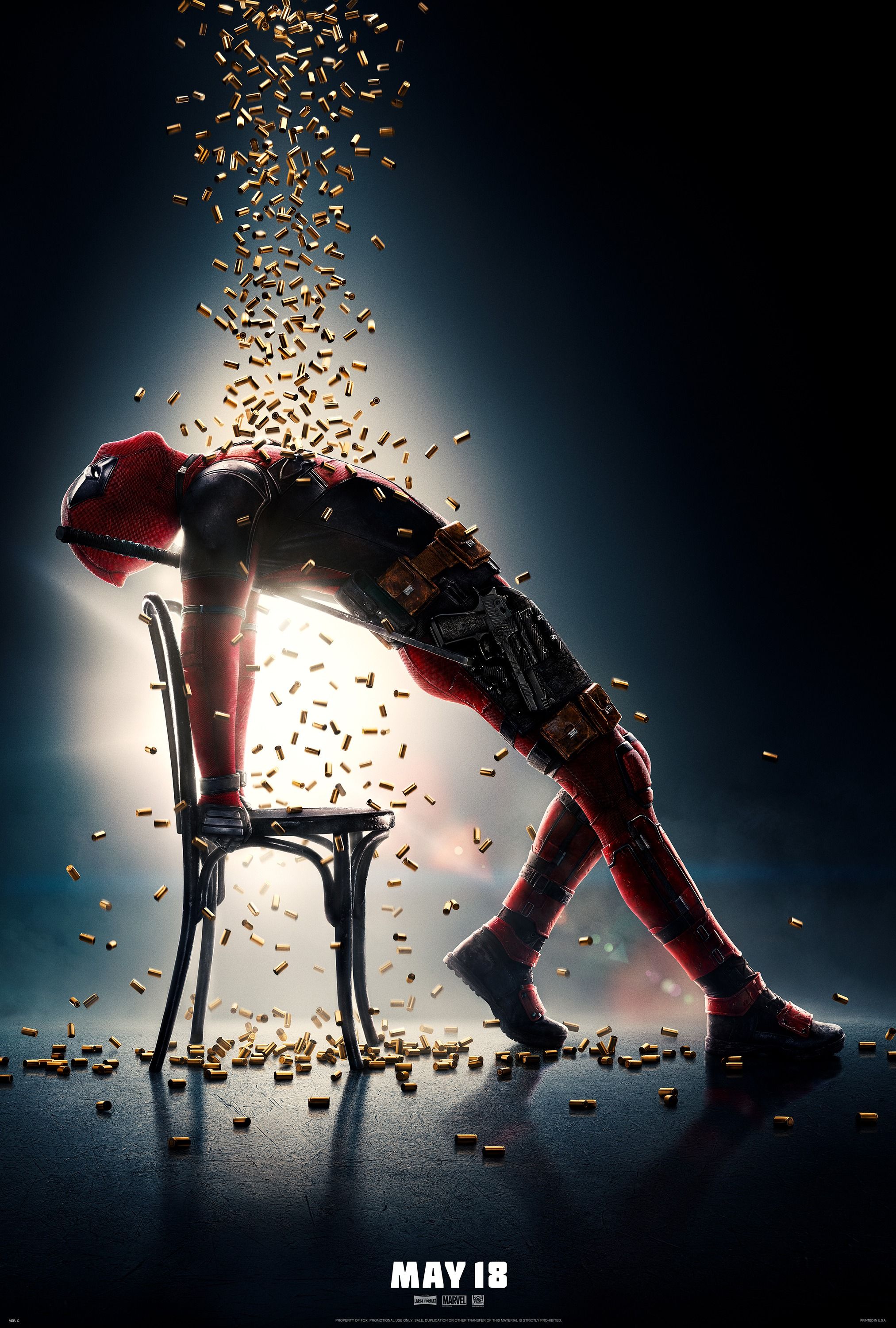The Hitman's Bodyguard may have Ryan Reynolds in yet another snarky action-comedy hero role, but rather than seeing him carve out a new "type" in the wake of Deadpool, it really only serves to exemplify how badly his mutant sleeper hit could have gone.
There were a lot of reasons for Deadpool's unprecedented success - it was a hard-R gore and swear fest at a time when superheroes were feeling homogenous, it poked fun at the genre's tropes without swerving too far into the unfamiliar, there was an obvious creative drive behind its action and comedy - but the biggest of them has to be Reynolds himself. His behind-the-scenes impact can't be understated; he was the driving force for the project when it sat in the rubble of X-Men Origins: Wolverine and kept pushing despite Fox's reluctance (he totally leaked the test footage, or at least 100% knew who did) and led a completely off-kilter viral campaign. Between his social media presence and the finished film, he is Deadpool, with a completely unhinged performance that dominates the movie and directly accounts for all of those previous success points.
If we're being honest, Deadpool does have a problem with mistaking irreverence for subversiveness, never quite being as smart or different as it thinks it is. However, this doesn't totally upset the movie almost entirely thanks to Reynolds charisma. Once Hollywood's pretty boy, this showed the true weirdo lurking beneath that chiseled visage and you can bet he'll never be the same again.
The first real post-Deadpool outing for the actor is The Hitman's Bodyguard. Now, technically the film was shot before the Merc with a Mouth hit cinemas, but its November 2015 start date was in close enough proximity to have had a clear influence. Indeed, the script (which had been circling studios for several years) was rewritten two weeks before filming to turn what was initially a straight drama into something approaching a comedy; they wanted to ride the soon-to-crest Wave Wilson.
The Hitman's Bodyguard is Too Dark To Be A Comedy
And while there are some great moments for Reynolds and sparring partner (verbally and physically) Samuel L. Jackson, it doesn't really work. The best way to describe The Hitman's Bodyguard is as an 80s buddy cop movie dragged into the modern day and soaked in all the over-aware humor that entails.
The weirdest thing about Patrick Hughes' film, marketed as an action-comedy, is how dark it is. The main plot involves triple-A protection agent Reynolds' Bryce having to escort sniper Jackson's Kincaid from Coventry, England where he's been held in prison, to The Hague in The Netherlands so he can testify against Gary Oldman's Eastern European dictator. That's right, it's a film about genocide and a small nation trying to bring down the entirety of Western civilization. You could definitely call it timely (although it's really just another 80s relic plot) but it's also incredibly stilted and rather uninspired; black comedy this ain't. We've not read the Black List script but imagine there was originally a bit more verve.
Regardless, within that you have silly moments aplenty; Reynolds complaining about vomit in his car or Salma Hayek (playing the wife of 18-years-her-senior Jackson) as an unhinged, romantically-obsessed prison inmate. The problem is that none of the characters feel rounded or integrated into the plot. Reynolds and Jackson are both the funny guy, so have to take it in turns being the straight one - and oddly enough Ryan gets the brunt of it, at points feeling like the Hitman's Babysitter - and as effective as comedy scenes like Bryce regarding his love-hate mission with Kincaid like a romantic relationship are, they're sparse and unrelated to the main story.
Everything comes back to grafting jokes onto an unrelated, otherwise serious screenplay. They may be funny enough, yet they don't build to anything greater or really alter the oppressive tone of the main Oldman dictator plot. And this is where we can really compare and contrast to Deadpool. That movie may have been following the superhero formula, but every scene was written with a joke in mind - the first act is entirely breakneck - and so had a constant fun energy even when dealing with the sadistic Francis. It was a project with a clear vision from the ground up.
You Can't Just Have Ryan Reynolds Punch Up A Boring Film
As we already said, though, that was a stroke of devious luck on the filmmakers part. It's easy to imagine Fox would have originally wanted Deadpool to be an action movie with comedy inflections, rather than the balls-out straddling action-comedy finally delivered; assume that Reynolds' obvious charisma would be able to elevate a more standard and thus "safe" script. The Hitman's Bodyguard shows how erroneous that is. The films aren't complete one-to-one translations but they do have very similar goals (albeit with a slight shift of financial odds - Bodyguard cost just $30 million, evident from its consistently obvious CGI) yet incredibly different results.
For Reynolds, this poses a question of whether he's actually going to be able to complete that transition to Hollywood's real-world Deadpool. He definitely seemed to be going that way but that he can't hold up in films with lesser scripts - unlike Chris Pratt, who was able to weather the otherwise average Jurassic World and The Magnificent Seven on his schlubby charm alone - puts him in a purgatory between type actor and simple pretty boy leading man.
But, of course, he still has Deadpool. It's easy to find the overwhelmingly enthusiastic response to the film a serious case of overhype - there's no way it needed to be part of the Oscar discussion - but in the light of The Hitman's Bodyguard the extent of the miracle Reynolds pulled off is clear; it really could have been the disaster many expected. Now let's just Deadpool 2 can prove it wasn't a fluke.

